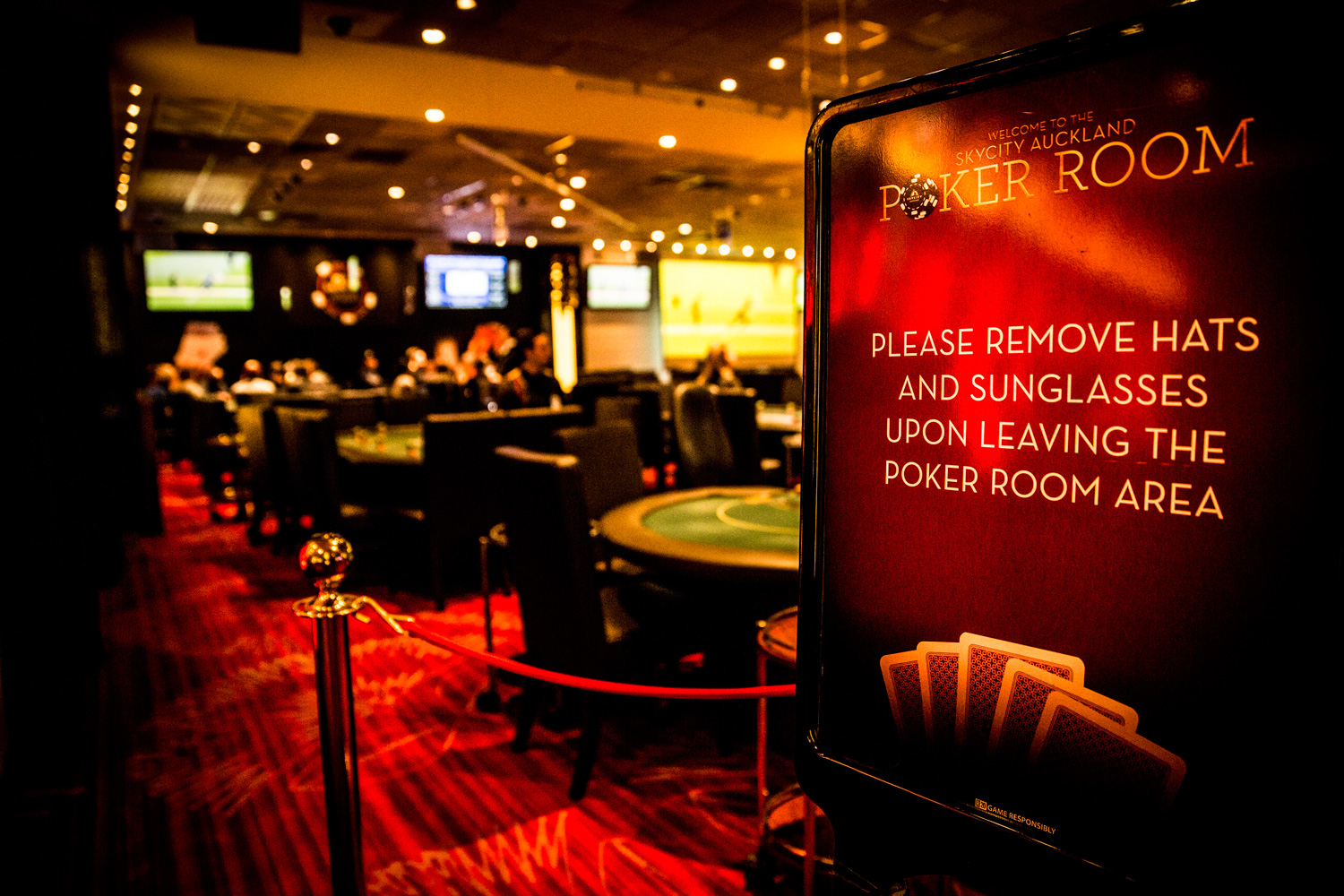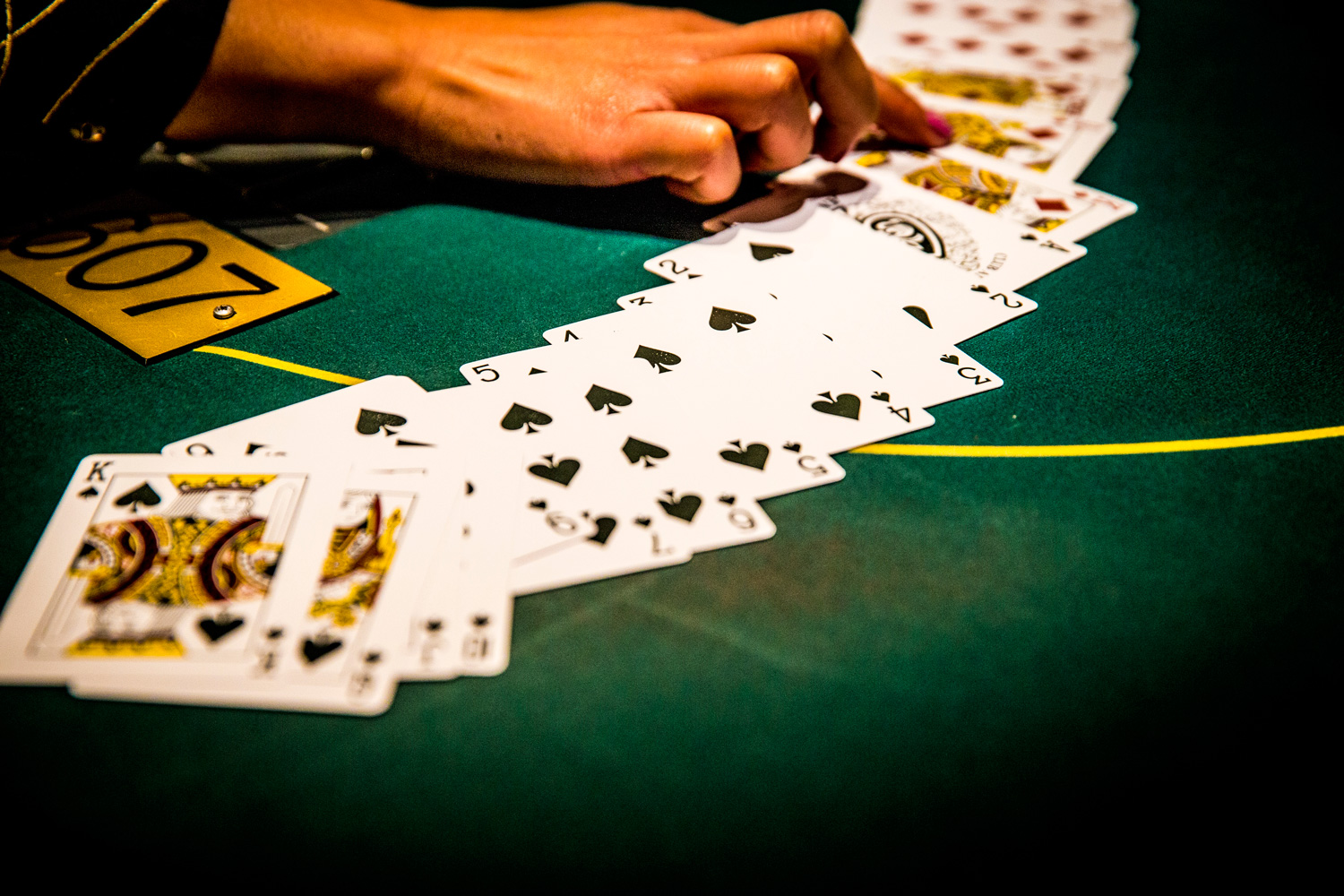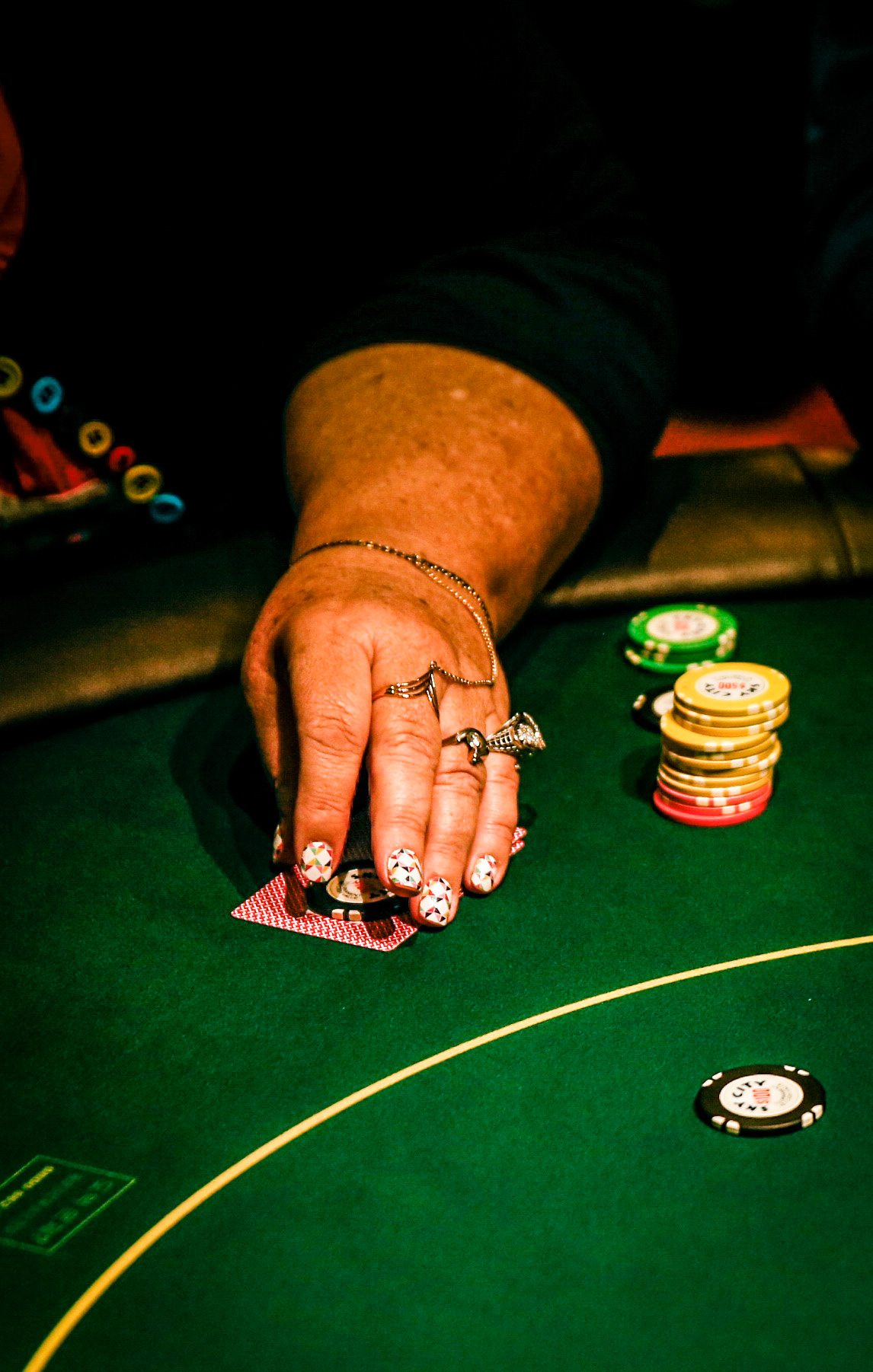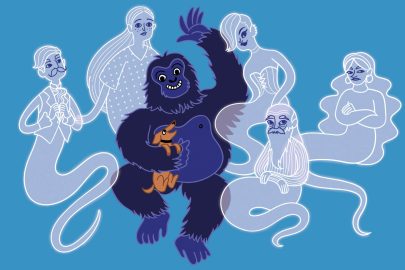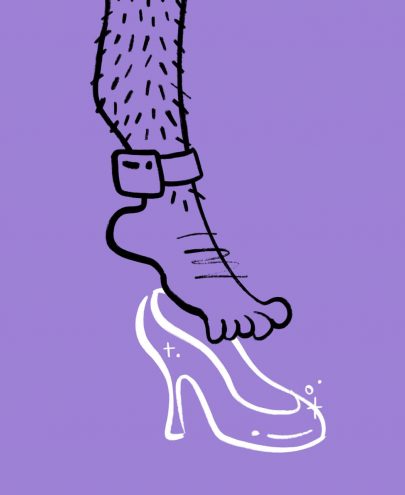Mar 24, 2016 etc
One wrong move can make all the difference between snaring the huge purse and crashing out in the country’s richest card tournament.
This article was first published in the March 2016 issue of Metro. Photos by Vicki Leopold and Simon Young.
In his Yankees cap, wire-framed specs and pale grey hoodie, Zack Lowrie has the look, at the poker table, of a share trader with some downtime. He actually works in television. He’s just finished on MasterChef. He is 25 years old, though casino lights and a serious expression give him the presence of a man a decade north of that.
When he bets, he always follows the same careful series of hand movements, then waits statue-like for his opponents to respond, the cap and glasses doing just enough to obscure his face. Between hands, though, he is fidgety. He constantly rearranges his chips and his eyes flit, bird-like, around the room, more spooked than they are mid-play.
Lowrie had entered the New Zealand Festival of Poker’s “Main Event” at SkyCity — the country’s most prestigious poker tournament — a few days earlier, alongside 135 other players competing for a prize pool totalling $272,000. There are just four left. The least any of them will take home is a tick under $27,000. The winner will get $81,000.
Lowrie is the favourite to take it. For the past few hours, he has barely put a foot, or a card, wrong, experiencing what top sportspeople refer to as “being in the zone” but poker players call “flow” — a heightened state of concentration and clarity, in which correct decisions come easily. In front of him are around a third of the entire tournament’s chips.
Across the other side of the table is Shane Tamihana, the 29-year-old owner of a panel-and-paint joint in Hastings. Tamihana has an almost identical number of chips. He and Lowrie are miles ahead of the other two remaining players. But that’s where the similarities end.
Lowrie is precise and considered. Tamihana is a fearless gambler. Lowrie has his neat, conservative New York Yankees cap. Tamihana has his hair gelled into a mini-mohawk, a shark’s dorsal fin. Lowrie arranges his chips in an obsessive-compulsive, layered wedge: yellow on the bottom, orange on the next level, a small tower of mauve on top. Tamihana’s chips form a wall: a three-deep fortress that he leans over, eyeballing his opponents.
Conventional tournament logic says they should stay out of each other’s way; put pressure on the weaker players instead. But sometimes, conventional logic goes out the window.
Another hand is dealt. Lowrie looks down at his cards, as he has done hundreds of times over the past three days. Millions over the nine years he’s been playing. He sees a pair of queens.
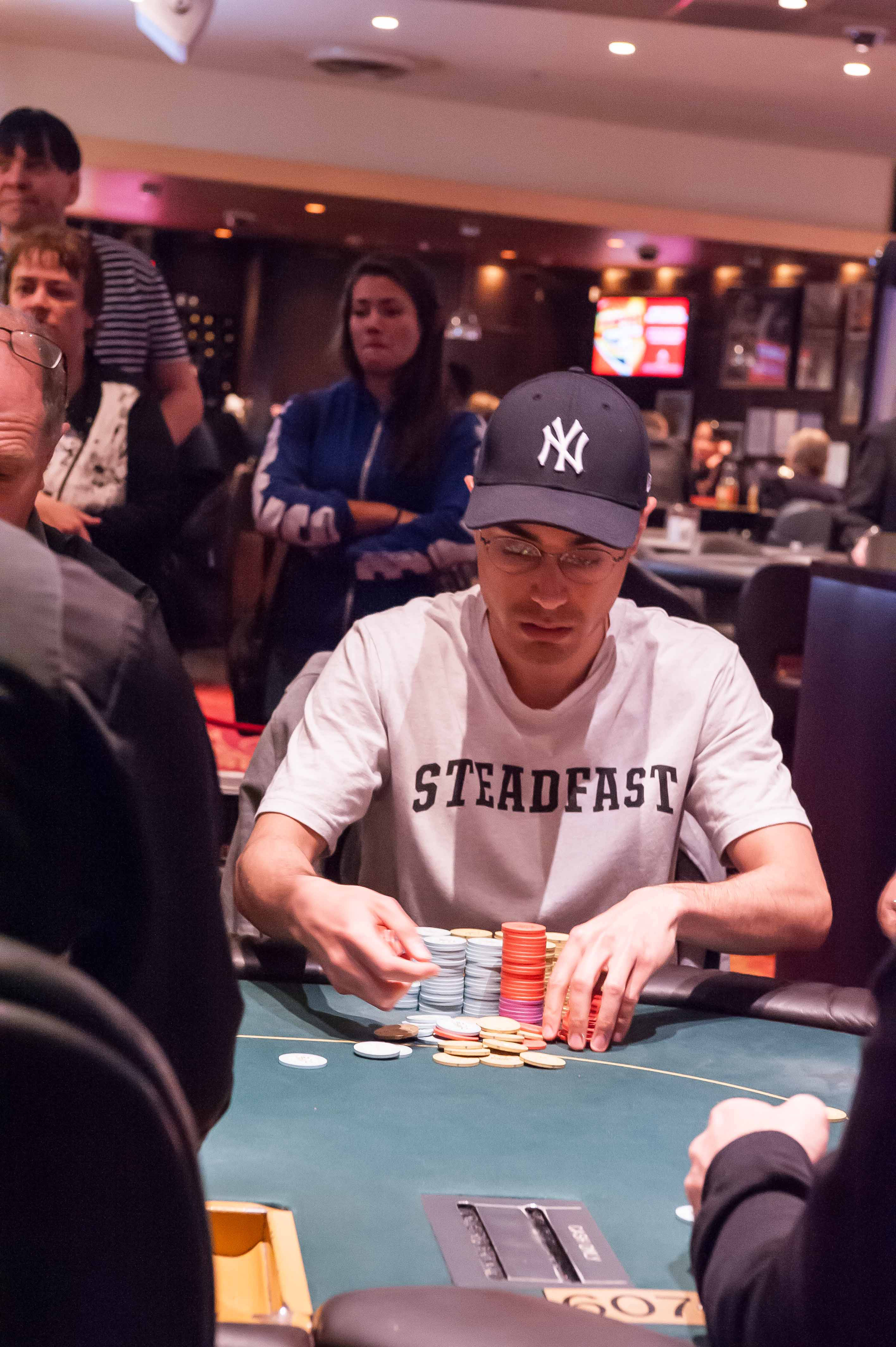
It’s what poker players refer to as a “premium starting hand”. He has an enormous stack of chips to work with, and he’s in the best position on the table.
None of which matters. Because, less than a minute from now, the room will erupt. Lowrie will take off his cap, cover his face with it, walk 10 feet from the table and lean over the back of a chair, releasing three days of concentration in a single, devastated posture.
And every one of his chips will be pushed to Tamihana’s side of the table.
Poker — once a shady back-room game, then a niche offering in US casinos — is now a pastime with ever-increasing respectability, played by tens of millions around the world.
It’s a global passion, and Auckland is no different. On any given night in this city, hundreds of people are playing against strangers online or hosting low-stakes home games for friends. Weekly pub tournaments have taken off, too.
At each pub, you find different players, and slightly different rules. But some things are always the same. There are always fart jokes. There is always a talker, who wants to tell you about his bad luck and his triumphs. There is always a quiet dude who is the most skilled player in the room, and should therefore be avoided as much as possible.
There is always a room full of men searching for something the cards alone won’t deliver. An unexpressed need for male connection. An escape from work, or families, or themselves. The feeling of being a winner. Meaning. Control.
And there is always a room full of men searching for something the cards alone won’t deliver. An unexpressed need for male connection. An escape from work, or families, or themselves. The feeling of being a winner. Meaning. Control.
This is where many players park their ambitions. Some, though, decide to take the next step, across the threshold of SkyCity’s poker room: the only regulated venue in Auckland where top players, wealthy tourists and half-decent amateurs can play each other for serious money.
There is a world of difference between a pub game and what happens here. A pub game won’t cost you more than 30 bucks. In the poker room, you can’t really get away with less than $200 at the lower tables. At the top ones, you’ll need anywhere between $1000 and $2500 to get started.
There’s a strong Asian presence — international students and businessmen. There are lonely travellers. There are a lot of young men, and a sprinkling of women.
There are also plenty of players — this is a casino, after all — who should probably never have sat down in the first place. These are the “fish”, the mediocre players who become targets for the best in the room. Some swim out again soon after, bruised and several hundred dollars lighter for the experience. But just as many stay for more punishment.
Despite the vast differences in skill levels and the money at stake, the poker room is actually one of the cheerier spots on SkyCity’s casino floor. Perhaps the lighter mood is down to the fact that everyone knows the casino isn’t out to skin the punters. In poker, you are never playing against the house. It’s your opponents you have to worry about.
Casinos make money from poker rooms by taking a “rake” from every hand in a cash game, a kind of commission for hosting and supervising. You end up paying it whether you’re winning or losing.
SkyCity’s poker room is home to the New Zealand Festival of Poker, a fortnight of major tournaments and side events that give the country’s best players a shot at national glory, bragging rights and some chunky prize money.
And this year, for the first time, I’ve decided to play in it.
I first started playing poker five years ago. My wife and I were living in Berlin, and a friend invited me to join the regular game he hosted. The other players, men and women, were mostly expats — Danes, Brits, Americans. Once a fortnight, we’d meet up for a low-stakes game and lots of beer. At some point during the bad bluffing and the laughter and the half-drunk bullshitting, something clicked. Of the group, there were only a couple of obsessives. I didn’t realise I’d become one of them so quickly.
I love poker. It’s a game of beauty and performance and exploitation, blissfully free of the kinds of conventional moral decisions we face in our lives outside of it. It is about forcing people to make mistakes for your own gain. In that way, it isn’t so different from journalism.
There have also been times, over the past five years, when the odds in my own life have felt like they’ve taken such a turn that the logic of the cards, even when they went against me, has been the only thing that anchored me in any kind of reality. Or so I thought, anyway.
I’d log in to PokerStars and play a hundred hands or so, winning and losing money, treading water numbly. I suppose it was depression, and I know it wasn’t good.
For a while after we returned to New Zealand, I played online every night. Once we put our son down and my wife went to bed, I’d log in to PokerStars, the world’s biggest poker site, and play a hundred hands or so, winning and losing money, treading water numbly. I suppose it was depression, and I know it wasn’t good.
These days, I play only a couple of times a week: pub games, and occasionally online. But my fascination with the game — its players, its ethical code, its politics — hasn’t gone anywhere.
Like Lowrie and Tamihana and everyone else here, I want to play the Main Event. But the entry fee is $2300, and I don’t have that kind of money. Because I’m writing this story, SkyCity agrees to give me a shot at making it there via a qualifying tournament, waiving the $500 entry fee. For every five players who register (creating a combined total of $2500), one gets a Main Event seat.
My qualifier is set to start at 2.30pm on a Sunday. Thirty-four players are registered, which translates to six Main Event tickets, a runner-up ticket to another qualifier, and a bit of cash left over for 8th place. Later, there are a couple of withdrawals, which means the leftover cash — $500 — goes to 7th place. There’s nothing for coming 8th or below.
In the weeks leading up to the tournament, I’ve been preparing: playing online and in pub games, re-reading strategy books, watching YouTube tutorials. There’s been a physical dimension to the prep, too. The tournament is likely to take between five and eight hours. That’s a long time to concentrate. So I’ve upped my exercise and meditation regimes, cut the booze, and avoided caffeine and fat and salt and sugar.
When I arrive on that afternoon, it’s immediately apparent the guys I’m about to sit down with aren’t part-time pub-chancers looking for a good time over a pint. They are experienced, focused, and want my chips. Players like Tai Riini from Whangarei — a truck driver with a tattoo on his forearm and an All Blacks cap perched on his head, who was once a poker-room regular. Cory Fransham, a New Lynn mechanic who has placed highly in major tournaments before. And Ben Rendall, a 24-year-old newly qualified doctor who I later discover is one of the country’s best players.
For some of them, the qualifier is just good practice and a way to get a cheap ticket to the Main Event; if they miss the cut, they’ll buy in, regardless. This is the standard I’m up against; the only advantage I have is that they’ve never seen me before.
Pub players like to think they can read your “tells” — little behaviours that give them clues to your play. Most can’t, and can’t hide their own either. These guys are a different story. Good players are sponges; they will soak up your tells, store them, and squeeze them all over you when the time is right.
So the less information you give away, the better. This is why many players opt for one of three sartorial options: a cap, sunglasses, or a hoodie, all of which offer differing levels of obstruction. The poker room is the only place in the casino where you’re allowed to do this.
I’ve gone for the last. Glasses and caps can be kind of a drag to wear for six or seven hours. A hoodie gives more options. It’s also a kind of a security blanket — a place to hide if it all gets too much.
I take my allocated seat. Big screens provide all the crucial information: the number of players entered, the number still in, the amount of chips in play, the total prize pool (more than $15,000), and, most importantly, a clock that counts down the time remaining on each level.
Five minutes later, poker-room manager John-Henry Smith takes the mic, tells his dealers to “Shuffle up and deal!” and we’re under way. And I’m totally out of my depth.
“I’ve had a thousand bad beats, I’ll have a thousand more in my career. They don’t generally affect me,” Zack Lowrie tells me, the day after Shane Tamihana knocked him out of the Main Event. “But this was a little bit different, because of the prestige of winning… that meant a lot to me. So to go out in that manner was really hard.”
Lowrie had agreed to meet me at a cafe in Ponsonby. I’m surprised by his 24-hour transformation. He still has the New York cap but the specs have gone, and he has a day’s growth. He’s wearing shorts and scuffed-up sneakers. He looks and sounds every bit like a 25-year-old.
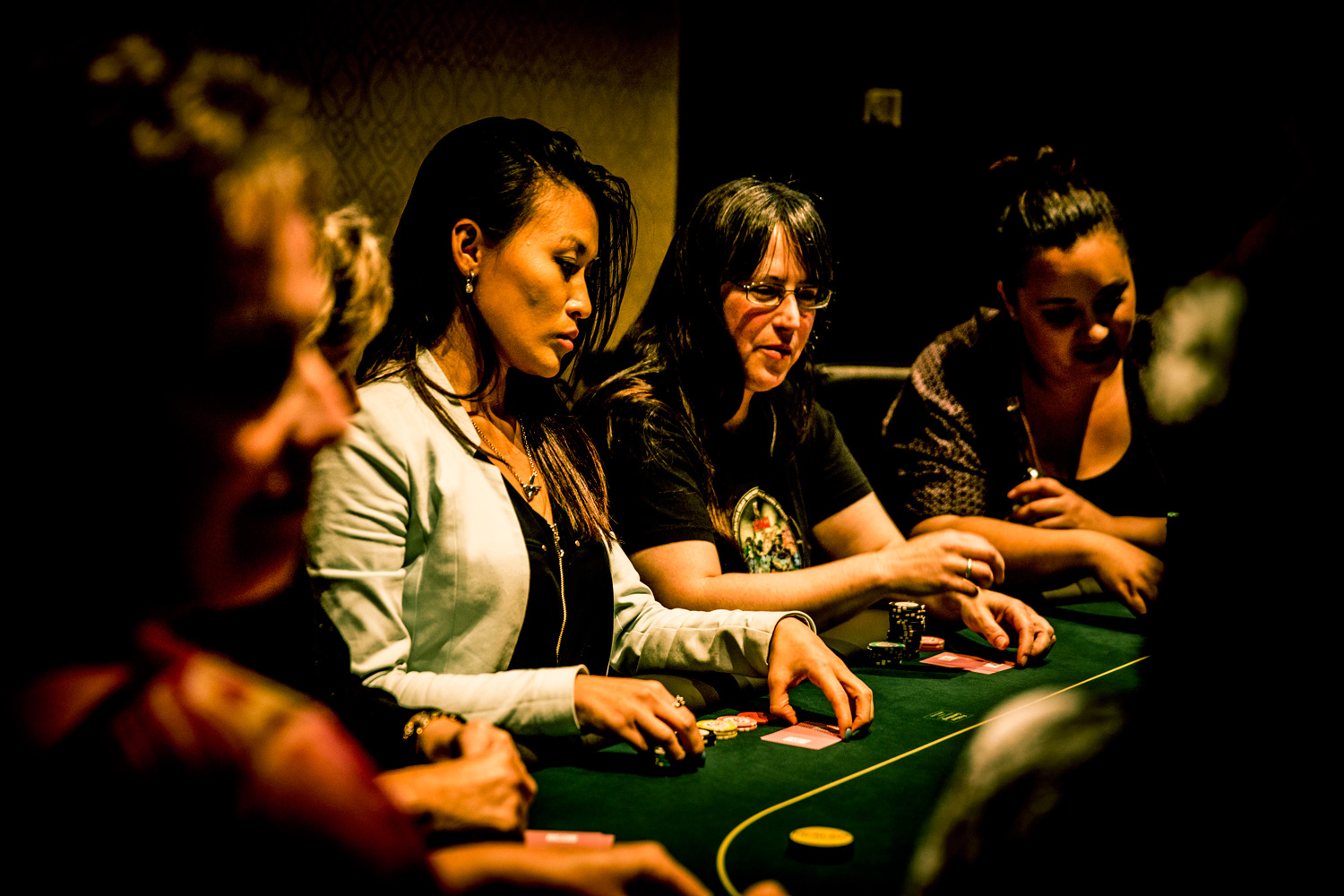
We relive the hand that saw him eliminated. Tamihana had gone “all-in” — putting his entire stack of chips on the line. Lowrie, with his pair of queens, had called. Tamihana turned over his cards — he had an ace and a king.
“When I see his hand, I’m not happy, because I know that it’s a flip,” Lowrie says. “And you try and avoid flips in tournaments if you think that you have a skill advantage over the field.”
What he means is that his odds of winning at that point were barely better than a coin-toss.
We chew over the moments that changed everything for Lowrie. The dealer laid down the first three cards. All low. Nothing for Tamihana. She paused, then dealt the fourth card. Again, nothing. There was another pause, before she laid down the fifth and final card, and flipped it over. An ace. Lowrie was busted in 4th place.
There was a rock-solid technical argument for doing what he did. But it was a decision that cost him $55,000.
“I still won 27K,” he points out. “It’s hard to explain, but I wanted my name next to that first place… I’m not going to lie and say I don’t care about the money because I do, but it’s more about recognition, respect.”
A well-known regular in SkyCity’s poker room, Lowrie is one of the small cluster of highly skilled young players making money on the cash tables. They’re very, very good at beating other people. They’re also unbelievably competitive with each other, which I suspect is another factor in his disappointment.
The perception many people have of poker players as gnarled, smoky old guys couldn’t be further from the contemporary reality. It’s a young person’s game, dominated by the under-35s in the same way professional sports are. To be one of the best requires many of the same disciplines as elite sportspeople: concentration, stamina, snap decision-making, and “present-ness” — the ability to focus on the moment while having a clear sense of how every action moves you closer to your end-goal.
They can make massive money, too, particularly from giant tournament purses stuffed full by the game’s surging popularity. Every year, for example, the World Series of Poker (WSOP) runs in Las Vegas. Its flagship tournament, the Main Event, costs $US10,000 to play in. In 2015, it attracted 6500 entrants, who collectively generated a prize pool of more than $US60 million.
The 24-year-old winner, Joe McKeehen, took home more than $US7.6 million — more than twice what the US Tennis Open champion receives. The runner-up got $US4.5 million.
Lowrie fell in love with the game watching the WSOP Main Event on ESPN. He joined the online poker revolution but, like many players, got caught up in “Black Friday” — April 15, 2011 — when the United States Department of Justice shut down the world’s three largest poker sites, using online gambling legislation.
The sites’ owners were charged with a host of money-laundering and fraud offences, and hundreds of thousands of players had their accounts frozen. While people outside the US (including in New Zealand) can still play online, the legality of internet poker in the States remains murky.
The ongoing fallout from Black Friday is one of the major battles in the fight for poker’s legitimacy not just in the States, but everywhere. At its heart is whether courts, legislators and the wider public accept — as players and administrators vociferously argue — that poker is a game of skill rather than chance.
No one disputes that poker is won and lost with real money. But its defenders equate it more with “mind-sports” like chess, bridge and backgammon (which are also played for cash) than with blackjack or roulette.
“Because the medium is money,” Lowrie says, “it just happens to be lumped in with gambling.” But if it isn’t a game of skill, he asks, “why do all the top players keep winning? Are they the luckiest guys in the world? How does that keep happening?”
This is a well-trodden argument. Another is that, because it’s a game of incomplete information, the players themselves are in control of the action.
In chess or backgammon, you can see all of your opponent’s pieces all of the time, and make decisions accordingly. In poker, your opponents’ cards are hidden.
This means worse hands can beat better hands, and do, regularly. In fact, this is the only real reason to play; if there were an absolute outcome determined by the cards, there’d be no point.
Without all the information you need, good decisions in poker are based on probability — not the guarantee you’re right, but the frequency you’ll be right when making that call.
It’s a game built on mathematics, manipulation, bravery and the exploitation of fear. And sometimes, as was the case with Lowrie’s fateful hand, you can make the right technical call and still get beaten.
The odds said that more than 50 per cent of the time, he should win that hand. Yesterday wasn’t one of those times.
The first three hours of my qualifying tournament are brutal. For the first two, I’d caught enough hands to chip up slightly. But for the past hour, I’ve had nothing. I keep a mental count of my chips, not that there’s much need: of the 10 stacks on the table, mine is one of the shortest. The tallest belong to two players — a Chinese man to my left, and Riini, the Whangarei truck driver.
The first three hours of my qualifying tournament are brutal. For the first two, I’d caught enough hands to chip up slightly. But for the past hour, I’ve had nothing.
About 30 minutes earlier, a young Korean guy had joined the tournament late. Wearing Aviators and designer clothes, he looks like one of those kids who blats up and down Queen St in a car trimmed like a sports shoe. He’s played loosely from the get-go, and doesn’t have many more chips than me.
What Aviators doesn’t realise is that I’ve already decided he — or more specifically his chip stack — is going to be my ship in this storm. Because loose players, when you’re at sea, are a gift, as long as you pick the right spot to engage them.
The dealer fires out another hand. I check my two cards. Ace of spades, jack of clubs. It’s a decent hand to play with. Aviators acts first, and makes a standard bet. Another player calls. So do I.
The flop comes. An ace and two clubs. I’ve made top pair.
Aviators bets again. It seems like he’s hoping I and the other player will be intimidated by the ace and fold. Which is what the other guy does.
I look down at my stack, and suck in a deep breath. “I’m all-in.”
I want Aviators to see demons on the table — want him to imagine I’ve landed a monster hand that isn’t worth messing with. He’s supposed to fold. But he doesn’t. He calls, even before “all-in” is fully out of my mouth.
We flip our cards. He smiles, and my stomach falls through my feet.
Loose players like to get lucky. Just like me, Aviators has an ace. Unlike me, he also has a four, which my jack crushes. But one of those little clubs on the table is a four. He has two pair. I have one.
The only card that can save me is one of the three remaining jacks. The odds of one coming are minuscule. I’m dead, and about to slump out into Federal St in a miserable 22nd place.
The turn card comes. It’s a club. Then the river. It isn’t a jack. It’s another club. Four on the table, plus the jack in my hand. Somehow, I’ve made a flush.
Aviators shakes his head, daggers behind his mirrored lenses. I’ve decimated his stack, and doubled mine. An elderly Australian sitting next to me compliments me on the hand. I’m not so sure. He shrugs.
“The best hand pre-flop won,” he says. “Sometimes, that’s how poker goes.”
Ben Rendall, the freshly minted doctor playing in my qualifying tournament, is tall, with big shoulders, and a slightly nervous habit of finishing his sentences with “you know?” He was, he tells me, a highly ranked road cyclist before he took up poker seriously. He strikes me as a polite, intelligent young guy, as well as a serial high-achiever with a ferociously competitive streak.
At 24, he is an immensely skilful poker player. In early 2015, he won a major SkyCity tournament that had a first prize of almost $38,000. He is also brutal on the cash tables. He’s been playing in the poker room since he turned 20, but has something of a moral dilemma about his success.
“When I was running good, I thought maybe I could just do this full-time,” he says. “It’s a nice lifestyle, you don’t have to do too much. But … in order for me to win, a whole lot more people are going to lose. If you’re sitting at a table with nine players, there might be two who are winning. We’re taking between $100 or $200 an hour off the table. The casino’s taking $250 an hour off the table. All the other players are between break-even and losing.”
And some of them lose a lot. “They’re really addicted to it, because there’s the idea that if I get better and start running better, I can start making money.”
This question of addiction also came up when I spoke to Lowrie.
“I’ve always had trouble with that word,” he said. “If you consider poker a sport, if you take someone like Richie McCaw, who would train every day, play every day, practise, is that an addiction because he’s spending all his time playing rugby? Maybe. I don’t know.”
But this is one of the quirks of poker, I point out. It would be absurd for an amateur to play rugby against McCaw. And yet elite poker players are constantly sitting down with, and pummelling, the “fish”.
“But what you’re asking about is the term ‘addiction,’” Lowrie said. “And I think that applies independent of your skill level. Say these guys who are playing six days a week. If they were good, does it automatically make it not an addiction? I don’t know the answer to that. I’m just putting the thought out there.
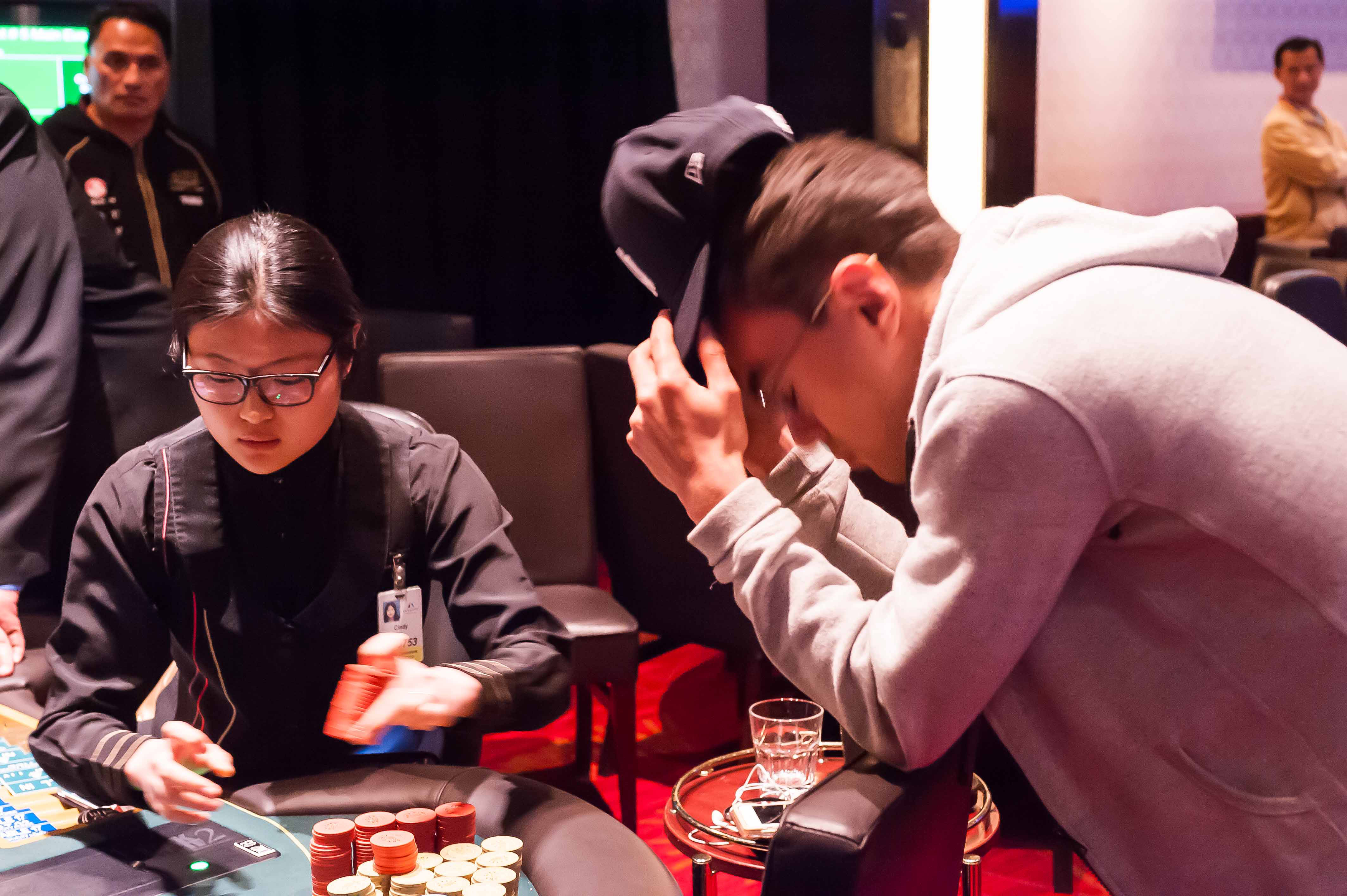
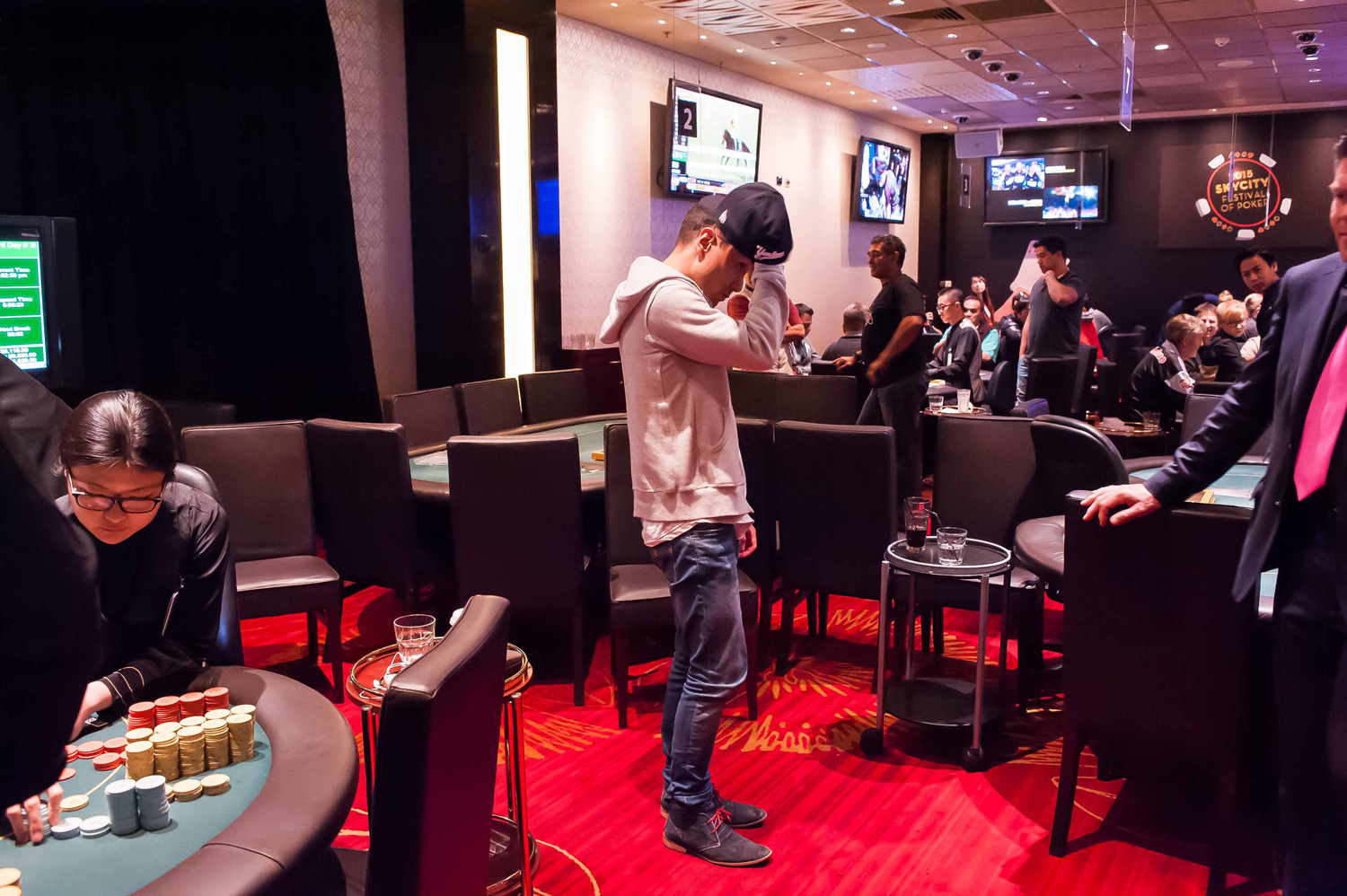 People wouldn’t consider playing rugby an addiction. They wouldn’t for a second say McCaw is addicted to rugby. The difference is it’s socially acceptable.”
People wouldn’t consider playing rugby an addiction. They wouldn’t for a second say McCaw is addicted to rugby. The difference is it’s socially acceptable.”
My win against Aviators couldn’t have come at a better time. The middle stages of a poker tournament are crucial. It’s an accumulation phase in which you set yourself up for the final stages of the game, when the pressure becomes insane.
Players start to drop out more quickly. We reduce down to two tables of 10, then two tables of nine. I start to win a lot of hands without having to show my cards, experiencing my own miniature version of flow. No longer worried about the blinds, I have more choice about which players to avoid and which ones to pressure. I stay away from the big stacks unless I’m in a good position and have excellent cards.
“You can’t win all the time. You’ll always have a winning streak and a losing streak. When you’re going through that losing streak, it’s knowing when to stop.”
But you can’t avoid the good players forever.
I look down at my cards. Ace, queen, both diamonds. It’s a good starting hand. I bet. Riini calls.
A queen and two small cards come on the flop. I’m in the same situation I was with Aviators — I have top pair. But Riini isn’t Aviators. He isn’t loose. He’s a tactical vortex inside the body of a bear. Not a mean bear. Just a completely inscrutable one I’d rather not poke.
I bet. Riini takes his standard, unreadable pause, and calls, again.
The turn card comes. I do my best to look unflustered but inside I’m screaming WHAT COULD YOU POSSIBLY HAVE? at Riini. I don’t want my top pair any more. I’m starting to get tired. I just want to give him my chips and go home.
This time I check. He bets.
This is what fear feels like in poker. It’s the fear of uncertainty, of not knowing how things will turn out, of only being able to make decisions based on what the other player is doing rather than what he actually has.
I could fold, end it there, and never find out what Riini’s cards are. But that would give the rest of the table, who (of course) are watching, an enormous amount of information. It would tell them all that I’m nervous about going past the turn with anything other than a huge hand. So I call, throwing more chips into the pot.
The river comes. I check. Riini bets, again.
By now, it’s a huge pot. I’ve been sucked far too deep into the vortex to find a way out now. The only option is to go deeper. I call, again.
Riini nods, and shows his cards. Two nines. My queens win. My queens win.
He taps the felt, a dignified way of acknowledging a good hand.
I’m now comfortably above the average stack size. There are 14 of us left.
Sarah Lam, a 32-year-old property investor and one of the few women who plays in higher-stakes games in SkyCity’s poker room, has just come back from playing in Las Vegas. What’s remarkable is she started playing poker tournaments only two years ago.
“I used to play with friends at home, just fun games for a five- or 10-dollar buy-in,” she tells me. “And I used to win quite a bit. So I thought, okay, let’s play pub poker now. I started winning that as well … Then I entered my first ladies event at SkyCity two years ago and came second.
“I got a big break when I went to Sydney to play for the first time. I entered a tournament with a $330 buy-in. I walked into the room, and it was all guys …There were 69 people in the tournament, and I was the only female. And I won it. I couldn’t believe it.”
Since then, she’s been playing seriously.
Like Rendall and Lowrie, though, Lam is extremely wary of the game’s financial risks. Each of them has a separate bank account, just for their poker funds. In Vegas, Lam would make enough to cover her daily expenses, then leave the table, unless she was running really well.
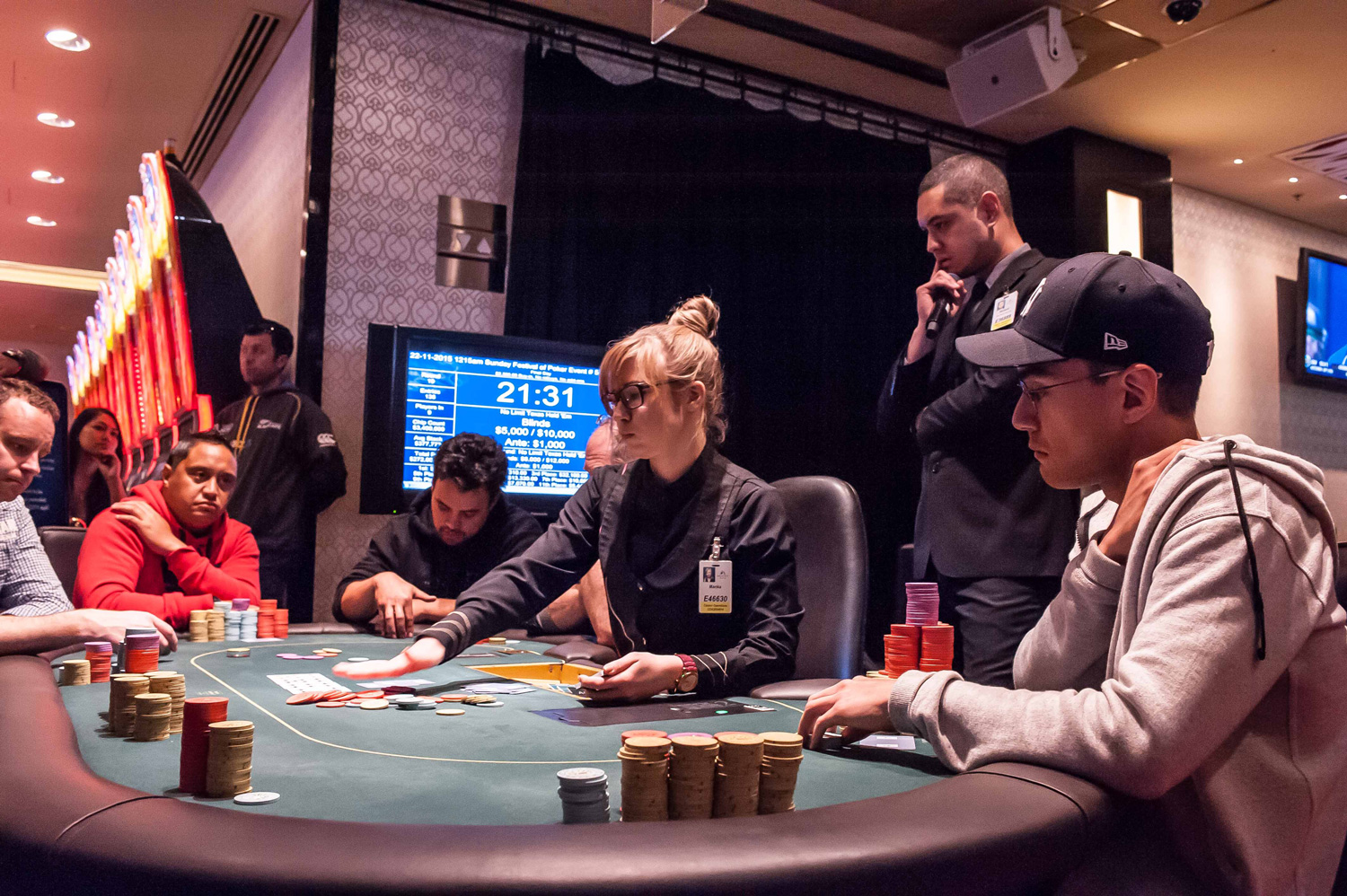
“You’ve got to be good with money to be a professional poker player,” she says. “And you can’t win all the time. You’ll always have a winning streak and a losing streak. When you’re going through that losing streak, it’s knowing when to stop.”
I ask what her ambitions are, thinking that she’s going to say something about winning the Main Event, or turning full-time. “For me,” she answers, “as long as I’m up, it’s a win.”
It’s a surprisingly circumspect response. But it’s a pattern with all the players I talk to. To be the best in the room, they have to be the smartest. But being the smartest also means they’re the ones who recognise the limitations and dangers of committing their entire lives to the game they love.
Lam has her properties. Lowrie wants to be a filmmaker, and tells me he’s being mentored by a “well-known New Zealand director”. Rendall is now a doctor.
“I’m going to keep [poker] as a sideline,” he says. “I’m more committed to medicine. I get a lot more enjoyment out of it. It’s a lot more rewarding. It gives me the opportunity to give something back to society, because I feel like I’ve taken quite a bit, in here, from people.”
Frankly, I’m amazed that young people who can win five- and six-figure amounts playing cards would contemplate a regular job. But what their winning numbers don’t show is how much has been spent or lost along the way.
“Fifty per cent of the room here will tell you that they’re winning players,” Rendall says. “I can tell you for a fact that it’s probably 10 per cent who make money.” Of those, he estimates, just a handful will be making more than $40,000 a year.
“There’s an old saying,” he tells me, as he returns to his game. “If you’re smart enough to do poker for a living, you’re smart enough to do something else.”
Beyond the five-hour mark in my tournament, funny things happen to my brain. I make silly mistakes. A couple of times, I lose concentration and find the dealer telling me how much I need to bet, which I blithely do without looking at my cards.
The poker room is full again because a $1100 buy-in tournament is about to start. The clack-clack-clack of chips sticks in my ears like a tinnitus buzz. The lighting — that weird, casino glow — catches, spangly, at the corners of my eyes.
Casino-goers suddenly become interested in the action and hover on the other side of a red rope just behind my shoulder — looming, vaguely spectral presences who I keep expecting to lean over and whisper, “They know you’re an amateur,” David Lynch-like.
We’re stuck at 14 players, across two tables, for an age. All-in, fold. All-in, fold. Raise, call, check, raise, fold. Clack, clack, clack. Change of dealer. Raise, fold.
The short-stacked players are feeling the heat. One of them shoves all-in for what must be the sixth time. He gets called. He turns his cards over. Ace, jack. His caller — Riini, again — does too. Ace, queen.
An ace comes on the flop. But there’s no jack to follow, and so our table reduces from seven to six. What we haven’t realised is that there’s been a flurry of activity on the other table. They’re down to four.
There are 10 players left. We’ve been playing for six hours. I’ve made the final table.
Riini and Cory Fransham, the mechanic, have too. Fransham and I have fairly short stacks, but ours are by no means the smallest. Riini, sitting right next to me, is in excellent shape.
Ten becomes eight in no time at all. Two players bust out quickly, and then it’s me, Fransham and a guy with a goatee with the shortest stacks.
The next person out will get nothing. I don’t want it to be me. I tighten up my play — fold hand after hand after hand, waiting for decent cards. Each time I look down is like stepping up to the edge of a deep hole, knowing that anything remotely good means I’m going to have to throw myself in, and just hope I survive.
I remember something Sarah Lam said to me. To get to the final table, you need skill. But once you’re there, you need some luck.
We go around and around like this until finally, Goatee goes all-in. He loses. We’re down to seven, playing for six Main Event tickets.
I am absolutely the shortest stack now. Each time the blinds go past me, my chips visibly dwindle. I’m dealt a pair of tens, and go all-in. I end up tying the hand with another player, and make nothing.
I wait, again, for good cards. They don’t come.
The big blind comes around again. It’s with Riini, one place away from me. In one more hand, I’ll face the ignominy of blinding out. I look at the clock. It’s just after 9pm. We’ve been playing for almost seven hours. No matter what I’m dealt, I know I have no choices left.
I look down at my cards. The nine and four of diamonds. Nothing, but for the fact that they’re the same suit.
“All in,” I announce.
There’s obvious relief. Several players call, so trivial is the size of my stack.
“Good luck,” Riini says, quietly. It’s the first thing either of us has said to the other.
The flop comes. Miraculously, there is a nine, and a four. I’ve made two pair.
The turn comes. There are two clubs on the table. One of the other players has two in his hand. One more and he wins. No club, and I’m almost certainly in the Main Event.
Whatever happens, I’m guaranteed five hundred bucks for 7th place. But I don’t want five hundred bucks. I want a ticket, so the past five years and hundreds of thousands of hands will feel like they mean something.
I want a ticket, so I will be there the following week when Riini makes it to Day 2 short-stacked and busts out early. When Rendall is dealt a pair of aces, goes all-in, and gets busted in 23rd by a lucky flush for the only woman who makes the cash, Tatjana Zizic. When Fransham makes a deep run into the tournament, comfortably making Day 3 before busting in 15th, within touching distance of the money.
And when Lowrie, totally in control, has his heart broken by a single card.
But right now, the seven of us stare down at the table, and wait for the river. The dealer flips it over. I tap the felt, drop my head, and walk away.

